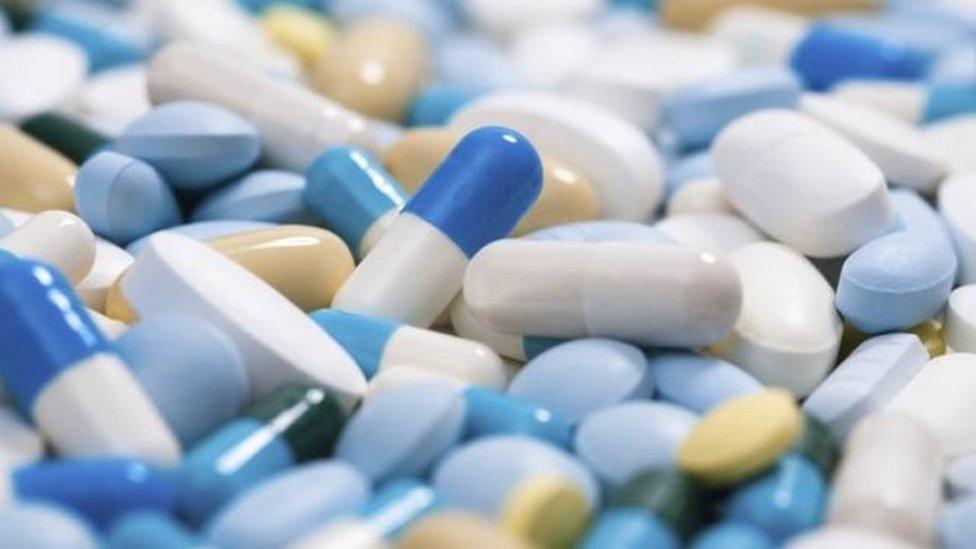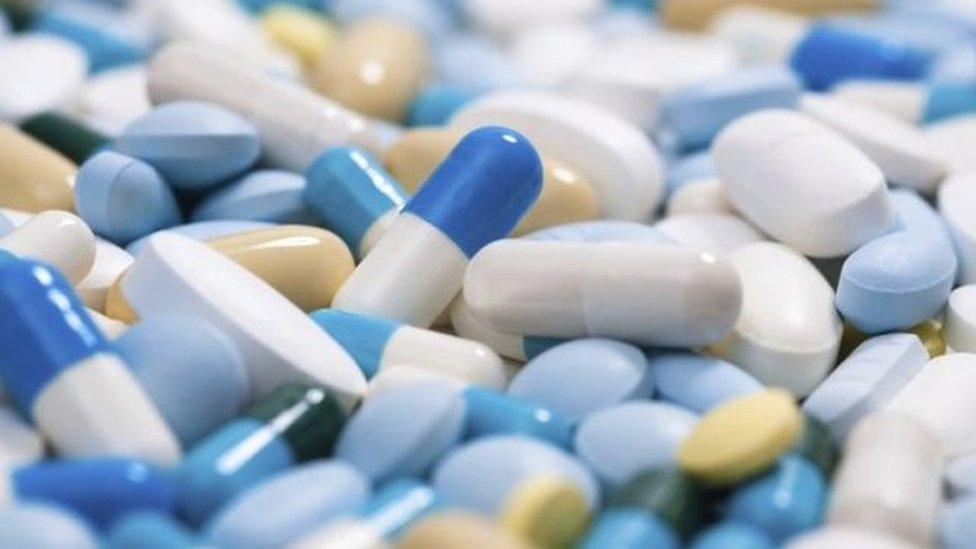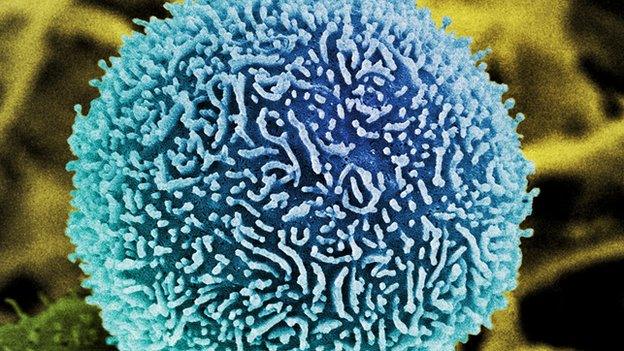Pancreatic cancer drug 'does not justify cost'
- Published

An advanced pancreatic cancer drug used in Wales should not be funded on the NHS, a UK health body has said.
Abraxane was approved by the All Wales Medicines Strategy Group (AWMSG) for advanced patients last year and made available on the NHS in Wales.
In final guidance, signalled last month, the National Institute for Health and Care Excellence (NICE) said it "does not justify the cost".
The Welsh government has said it will remain available in Wales for now.
The long-term impact for Wales of NICE's decision is yet to be confirmed after Wednesday's guidance.
Anna Jewell, director of operations at charity Pancreatic Cancer UK, said it is "imperative" the Welsh government ensures eligible patients with advanced pancreatic cancer can continue to access the "life-extending drug".
"We understand that the routine use of the treatment is under review following on from NICE's bitterly disappointing decision in England, so we urge the AWMSG not to U-turn on its initial decision," she added.
"Otherwise, it will be denying people with advanced disease the chance of potentially spending twice as long with their loved ones as they would have without the treatment."
Cost of Abraxane
-
£246 per 100mg vial
-
£1,481 estimated cost of a 28 day cycle
-
£5,035 cost of full 3.4 month treatment, per person
NICE looked at how well the drug, also known as nab-paclitaxel, worked alongside a chemotherapy drug for patients with pancreatic cancer that has spread, who have not received any other treatments.
Sir Andrew Dillon, NICE chief executive, said: "Although it is more effective than one of the treatment options currently available, nab-paclitaxel is linked with more side-effects.
"When we consider how these side-effects will affect each individual and the fact that it is also more expensive, nab-paclitaxel cannot be considered an effective use of NHS resources."
The public body, which publishes guidance on new and existing medicines, said side-effects include a drop in the number of blood cells.
This can trigger an increased risk of infection, bleeding problems and tiredness and breathlessness, among other symptoms.
The Welsh government has sought advice from AWMSG on NICE's decision.
"Until the minister for health has had an opportunity to consider advice from the All Wales Medicines Strategy Group, Abraxane will continue to be available in Wales," a spokesman said.
- Published17 September 2015

- Published22 September 2014

- Published15 October 2015
